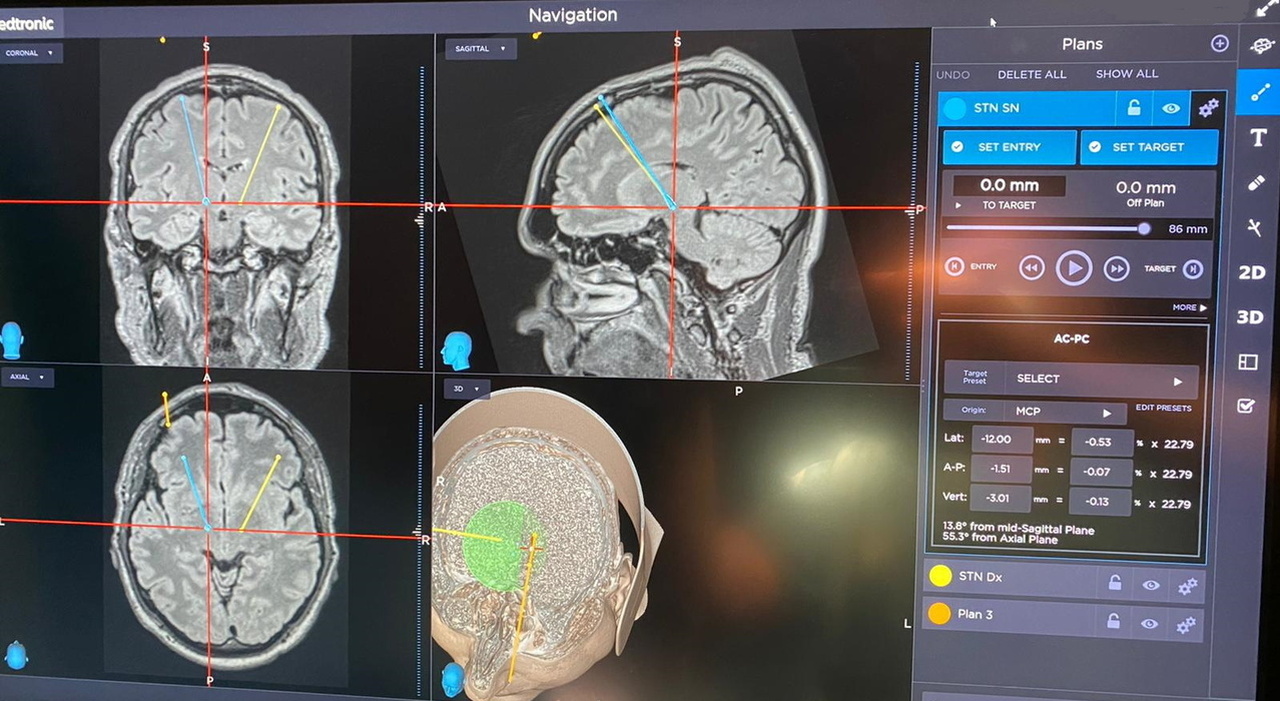A new therapy increases the life expectancy of young patients with a rare type of brain tumor. Diffuse midline glycoma is a very aggressive and inoperable tumor with a median survival of approximately 12 months from diagnosis. With the experimental therapy of the Infant Jesus of Rome we arrive at about 24 months of expectation: “Allowing sick children to live longer means giving them a more chance to benefit from new treatments that are gradually available or from clinical trials in which to add the target medicines at the forefront “ Angela Mastronuzzi, coordinator of the study and head of Neuro-oncology, structure of the Department of Oncohematology, Cell Therapy, Gene Therapies and Hemopoietic Transplant directed by Franco Locatelli.
The Bambino Gesù pediatric hospital in Rome is among the first international centers to have experimented a treatment based on the molecular genetic characterization of the tumor of each patient involved in the research and on the use of ‘target’ drugs. The study was published in the journal Therapeutic Advances in Medical Oncology.
Cancer and cell phone use, is there a link? Olivi: “No, but it is better to avoid excessive use”
Aggressive and inoperable cancer in children
Diffuse midline gliomas are typical tumors of the pediatric age characterized, for more than 90%, by mutations of the H3K27M protein. This is associated with other genetic anomalies that can vary from case to case. They develop in the median structures of the brain, including the pons (which regulates vital functions such as breathing and heart activity). These tumors are very aggressive, they tend to spread rapidly and infiltrate deeply. Because of their location, they cannot be surgically removed.
Higher incidence between 5 and 10 years
In Italy approximately 20-25 pediatric cases are diagnosed per year of gliomas located in the pons, with a peak incidence between 5 and 10 years of age. Median survival is very low (9-12 months) and less than 2% of children survive 5 years after diagnosis, despite radio and chemotherapy treatments that are standard therapy. Unfortunately, an effective cure has not yet been identified against this type of cancer.
The study lasted 4 years
The study for the experimental treatment of pons gliomas was conducted by the multidisciplinary team of Neuro-Oncology (clinicians, surgeons, pathologists, biologists) of the Bambino Gesù hospital. The research lasted 4 years and involved 25 patients aged between between 5 and 14 years. Experimental therapy was based on the study of characteristics genetics of the tumor of each individual patient: portions of tumor tissue obtained by biopsy were analyzed in search of genetic anomalies that could be the target of drugs already available.
This phase of genetic investigation of tumors was made possible thanks to technologies of Next generation sequencing (Ngs) for advanced molecular diagnosis. Thus, in addition to standard therapy, 9 out of 25 children were able to subsequently administer ‘target’ drugs, i.e. directed against the specific mutations identified in their tumor. No serious side effects were seen in patients treated with personalized therapy and median survival went from less than 12 months from diagnosis to approximately 24 months.
Philogen, clinical programs are progressing in line with expected timelines
“Results never obtained before”
«The combination of standard therapy and targeted drugs has led to results never obtained first in the treatment of this terrible form of cancer, ”he explains Angela Mastronuzzicoordinator of the study and head of Neuro-oncology, structure of the Department of Oncohematology, Cell Therapy, Gene Therapies and Hematopoietic Transplant directed by Franco Locatelli.
The study showed that the cancer cells of most diffuse midline gliomas express several genetic alterations. Targeted drugs are already available against some of these mutations. The results of the research therefore highlight the importance of proceeding with biopsy and molecular characterization of the tumor to design a therapeutic plan that gives greater chance of survival patients compared to administering standard therapy alone.
The study was supported by the association ‘Il courage dei Bambinì and in October 2022 was awarded as the best oral presentation at the National Congress of the Italian Association of Pediatric Hematology oncology.
Tumors, cells responsible for colorectal cancer recurrence discovered. Researchers: “A hope for millions of sick people”
